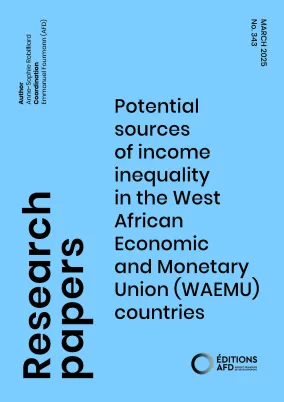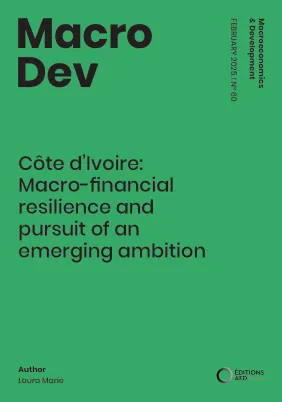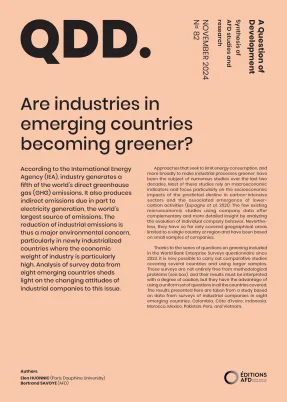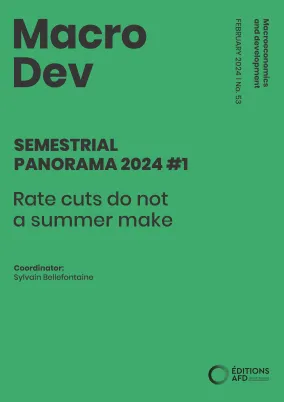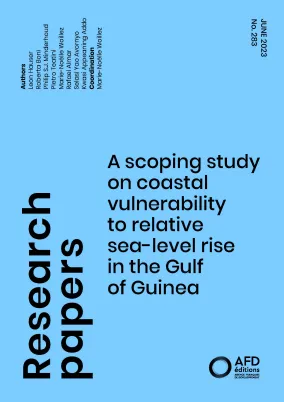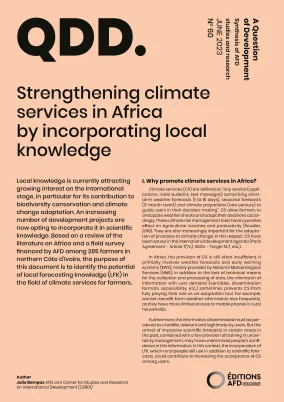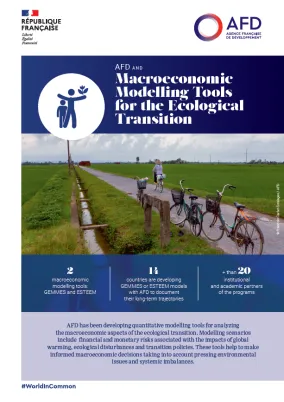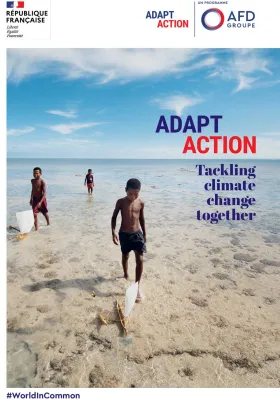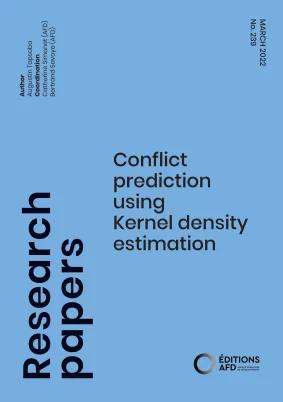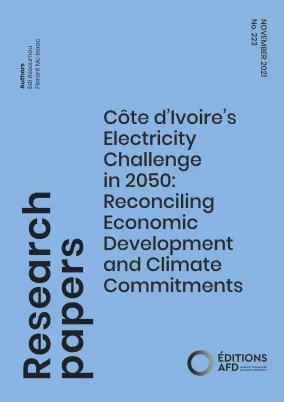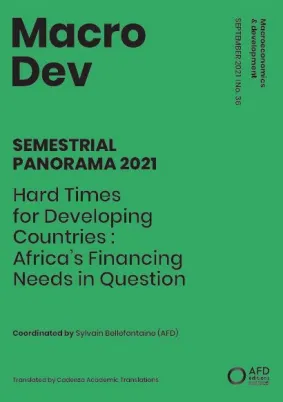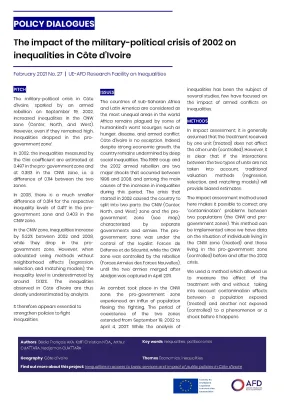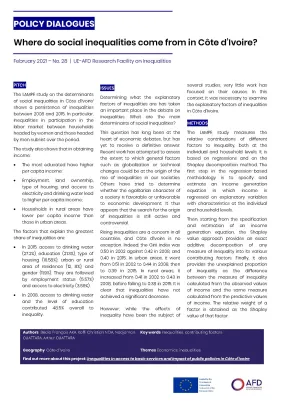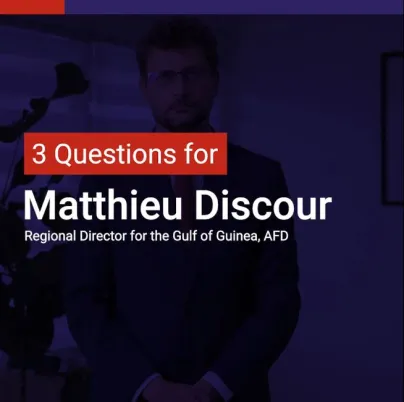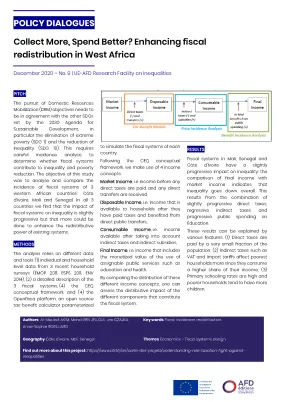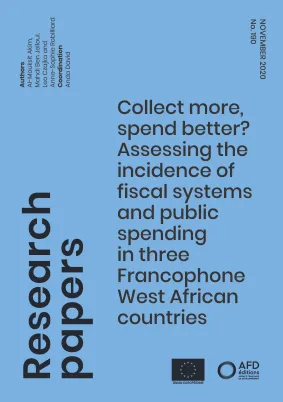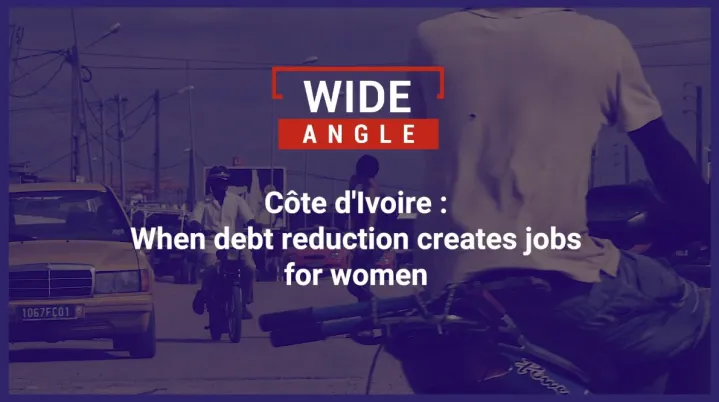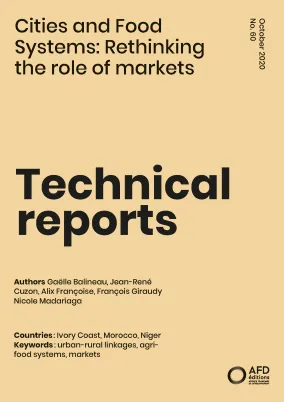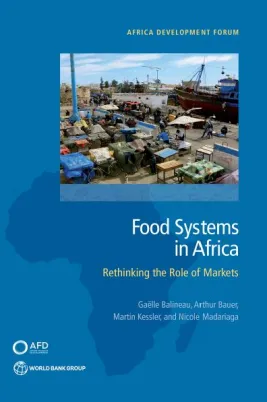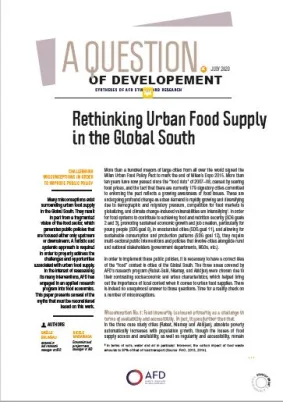Publications and media
Potential sources of income inequality in the West African Economic and Monetary Union (WAEMU) countries
This paper examines income inequality in the West African Economic and Monetary Union (WAEMU) region, using recent harmonized household survey data across eight member countries. The study explores...
Published on
Côte d’Ivoire - Macro-financial resilience and pursuit of an emerging ambition
Since emerging from its “lost decade” (2000-2010), Côte d'Ivoire has enjoyed strong economic growth (+7.2% since 2012). Resilient in the face of successive external shocks, it has confirmed its positi...
Published on
Are industries in emerging countries becoming greener?
According to the International Energy Agency (IEA), industry generates a fifth of the world’s direct greenhouse gas (GHG) emissions. It also produces indirect emissions due in part to electricity gene...
Published on
MacroDev - Semestrial Panorama 2024 #1
Three decades ago, it was believed that the end of the (first) Cold War would herald the “end of history” and the advent of economic globalization dominated by multinational companies, relegating gove...
Published on
A scoping study on coastal vulnerability to relative sealevel rise in the Gulf of Guinea
The Gulf of Guinea's low-lying soft coastline is highly vulnerable to coastal erosion and relative sea-level rise (rSLR). Large capital cities and core economic activities are concentrated along the c...
Published on
Strengthening climate services in Africa by incorporating local knowledge
https://issuu.com/objectif-developpement/docs/qdd_60_vf_bdLocal knowledge is currently attracting growing interest on the international stage, in particular for its contribution to biodiversity conser...
Published on
AFD and Macroeconomic Modelling Tools for the Ecological Transition
AFD has been developing two macroeconomic modelling tools – the GEMMES and ESTEEM models – for analysing the macroeconomic aspects of the ecological transition.
Published on
Adapt'Action: Tackling Climate Change Together
More than 3 billion people live in contexts that are highly vulnerable to climate change (IPCC, 2022). Yet, adapting to the impacts of climate change remains a complex process: multiple sectors as wel...
Published on
Conflict prediction using Kernel density estimation
Being able to assess conflict risk at local level is crucial for preventing political violence or mitigating its consequences. This paper develops a new approach for predicting the timing and location...
Published on
Côte d’Ivoire’s Electricity Challenge in 2050: Reconciling Economic Development and Climate Commitments
In closing its economic gap with emerging markets, Côte d’Ivoire will face a substantial increase in electricity demand over the next three decades. Côte d’Ivoire has signed the Paris Agreement that a...
Published on
Valentine Monnier: "sustainable mobility means facilitating access to essential services"
CICLIA is a facility funded by the EU, SECO and AFD that supports more than 30 cities in sub-Saharan Africa in the preparation of low-carbon and resilient urban strategies and projects. In the Côte d'...
Published on
Hard Times for Developing Countries: Africa’s Financing Needs in Question
Semestrial Panoramas are special issues of the MacroDev series written by AFD analysts; They present a synthesis of macronomic et socioeconomic analyses of emerging and developing countries. In additi...
Published on
The impact of the military-political crisis of 2002 on inequalities in Côte d’Ivoire
The military-political crisis in Côte d'Ivoire, sparked by an armed rebellion on September 19, 2002, increased inequalities in the CNW zone (Center, North, and West). However, even if they remained hi...
Published on
Where do social inequalities come from in Côte d’Ivoire?
The LAMPE study on the determinants of social inequalities in Côte d’Ivoire1 shows a persistence of inequalities between 2008 and 2015. In particular, inequalities in participation in the labor market...
Published on
Matthieu Discour : Mobilising all funding for climate finance in the Gulf of Guinea
AFD has placed the implementation of the Paris Agreement at the heart of its mandate. A commitment that accompanies our actions in our different countries of intervention. Particularly in the Gulf...
Published on
Collect More, Spend Better? Enhancing fiscal redistribution in West Africa
The pursuit of Domestic Resources Mobilization (DRM) objectives needs to be in agreement with the other SDGs set by the 2030 Agenda for Sustainable Development, in particular the elimination of extrem...
Published on
Collect more, spend better? Assessing the incidence of fiscal systems and public spending in three Francophone...
The objective of this study is to analyse and compare the incidence of fiscal systems of three western African countries: Côte d’Ivoire, Mali and Senegal. The analysis relies on different data and too...
Published on
Côte d'Ivoire: When debt reduction creates jobs for women
In Côte d’Ivoire, AFD is supporting training and vocational integration for young women via programs to set up micro and small enterprises (MSEs) and develop income-generating activities, including in...
Published on
Cities and Food Systems: Rethinking the role of markets
This note is based on a research program carried out by AFD since 2014 to assess the role of food markets in African cities and to shift to a more holistic approach of “food systems”, considering many...
Published on
Food Systems in Africa
Rapid population growth, poorly planned urbanization, and evolving agricultural production and distribution practices are changing foodways in African cities and creating challenges: Africans are incr...
Published on
Rethinking Urban Food Supply in the Global South
Challenging misconceptions in order to improve public policy. Many misconceptions exist surrounding urban food supply in the Global South. They result in part from a fragmented vision of the food sect...
Published on

